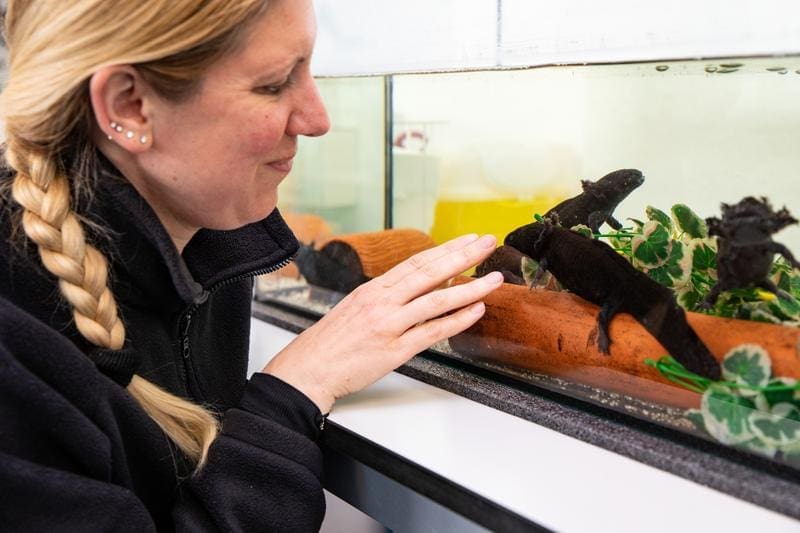Axolotl skin offers new hope in the fight against multi-resistant germs and cancer cells
Researchers at Hannover Medical School (MHH ) have isolated antimicrobial peptides (AMP) from the skin mucus of axolotls, which are considered a promising alternative to classic antibiotics and can also fight tumor cells. Axolotls are not only known for their exceptional regenerative capacity, but also use AMP in their mucous membranes to effectively protect themselves against pathogens. These peptides are part of the innate immune system and are found in almost all living organisms, but their medical importance is growing worldwide in view of increasing antibiotic resistance.
A research team led by Dr. Sarah Strau├¤ examined various AMPs from the skin mucus of laboratory axolotls and was able to show that they are not only effective against multi-resistant bacteria such as MRSA (methicillin-resistant Staphylococcus aureus), but also specifically kill cancer cells in cell cultures. The results were published in the scientific journal “Plos one”.

Source: Copyright: Karin Kaiser/MHH
The skin mucus was obtained by gently massaging the animals with sterile gloves. The peptides were then identified and synthesized in collaboration with the Fraunhofer Institute for Toxicology and Experimental Medicine ITEM. A total of 22 potentially effective peptide candidates were selected. Due to their special chemical structure – they contain positively charged amino acids and water-repellent components – the AMPs can bind to the cell wall of bacteria, cause holes there or penetrate the cell and destroy it. They are also effective against fungi and viruses.
Four of the AMPs obtained from axolotl were particularly effective against MRSA, in some cases even more effective than the reserve antibiotic vancomycin. This is significant, as the spread of multi-resistant germs continues to increase due to the excessive use of antibiotics. Three of these peptides also showed an anti-carcinogenic effect by triggering programmed cell death in breast cancer cells without damaging healthy cells. The researchers see this as an important approach for the development of new therapies against antibiotic resistance and cancer, but emphasize that further investigations are necessary.
The axolotl, originally native to Mexico, is now threatened with extinction. At the “Ambystoma Mexicanum Bioregeneration Center” at the MHH, other endangered amphibian species are kept and researched alongside axolotls. The center works together with international partners and supports veterinarians with questions on keeping, diagnosing and treating these animals.
Original Paper:
Editorial office: X-Press Journalistenb├╝r├Č GbR
Gender note. The personal designations used in this text always refer equally to female, male and diverse persons. Double/triple references and gendered designations are avoided in favor of better readability.




